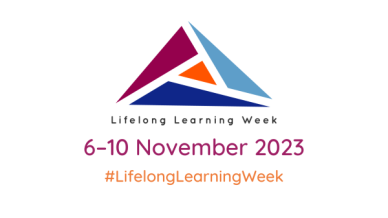“The drastic decline in funding for community-based adult learning over the last decade is hitting the poorest hardest” says WEA CEO, Simon Parkinson in response to the latest report on education spending from the Institute for Fiscal Studies.
Every year, the IFS report produces a crucial reminder of the pressures that education funding faces. Classroom based adult learning is always the worst affected. It will now be over 40% below 2009–10 spending levels by 2024–25.
And this is precisely the type of provision which reaches our most disadvantaged communities – offering hope to some of the 8m adults without qualifications or the 9m who are thought to have low literacy or numeracy.
It would be a considerable advance if by the time of the next IFS publication in 2024, a government (either pre- or post- election) has set out a timetable for funding increases alongside a national lifelong learning strategy. The IFS have set out the size of the challenge, it is crucial for the state of the economy and the health of our communities that the investment is there.
What the report says about adult learning
The Institute for Fiscal Studies (IFS) annual analysis of education spending is a unique overview of every part of the sector. Nearly every year the starkest figures belong to adult education. As IFS say in this year’s report:
“Few areas of public policy have experienced as much change as adult education and skills. Since the turn of the millennium, there have been a number of major reforms, creating a post-18 education system that is often difficult for individuals and employers to navigate.”
That level of change has led to some uplift in spending in very recent years – mostly around apprenticeships and the maths programme Multiply. Taking a longer view, however, the picture looks much worse:
“Spending on classroom-based adult education has fallen especially sharply, driven by falling learner numbers and real-terms cuts in funding rates, and will still be over 40% below 2009–10 levels in 2024–25 even with the additional funding”.
How is underinvestment impacting adult learning?
This year’s Learning & Work Institute participation survey shows the impact of that consistent under-funding:
- Around half the adult population have not participated in any learning in the last three years
- The rates of participation for adults who are unemployed (45%), economically inactive (23%) and in the most disadvantaged social groups (38%) are lower still.
There is a distinct risk of adult learning policy and funding focusing on those who are already qualified and already in work.
We noted that in the recent Autumn Statement the Chancellor was alert to the issues – mentioning in his speech that 9m adults have low literacy or numeracy – but offered no solutions for anyone already over the age of 19.
The Advanced British Standard may help the younger learners of the next decade but for any of the 8m or so adults currently without qualifications, nothing new is on the table.
It’s time remember those who left school with no qualifications when budgeting
As we go into 2024, with a General Election very likely and further Budgets still to come, it is time for a fresh look at investment for community-based adult learning.
Appreciating that finances are tight, increases in spending may need to be spread across the term of one Parliament or Spending Review.
Recognising that adult education budget is increasingly devolved, it is also important that funding increases are spread between central and Mayoral budgets.
Investment in adult learning has impact in terms of increased productivity, reduction in welfare benefit claims and can make savings for the health service through fewer GP visits. The social and community benefits of adult learning and the personal achievements are even more important and can be the key to encouraging adults back to learning.
A new adult learning investment plan is needed – alongside a lifelong learning strategy and promotion of the opportunities available in every community. We need to break out of the cycle of low investment and low participation to fully realise the benefits of adult learning for everyone.














